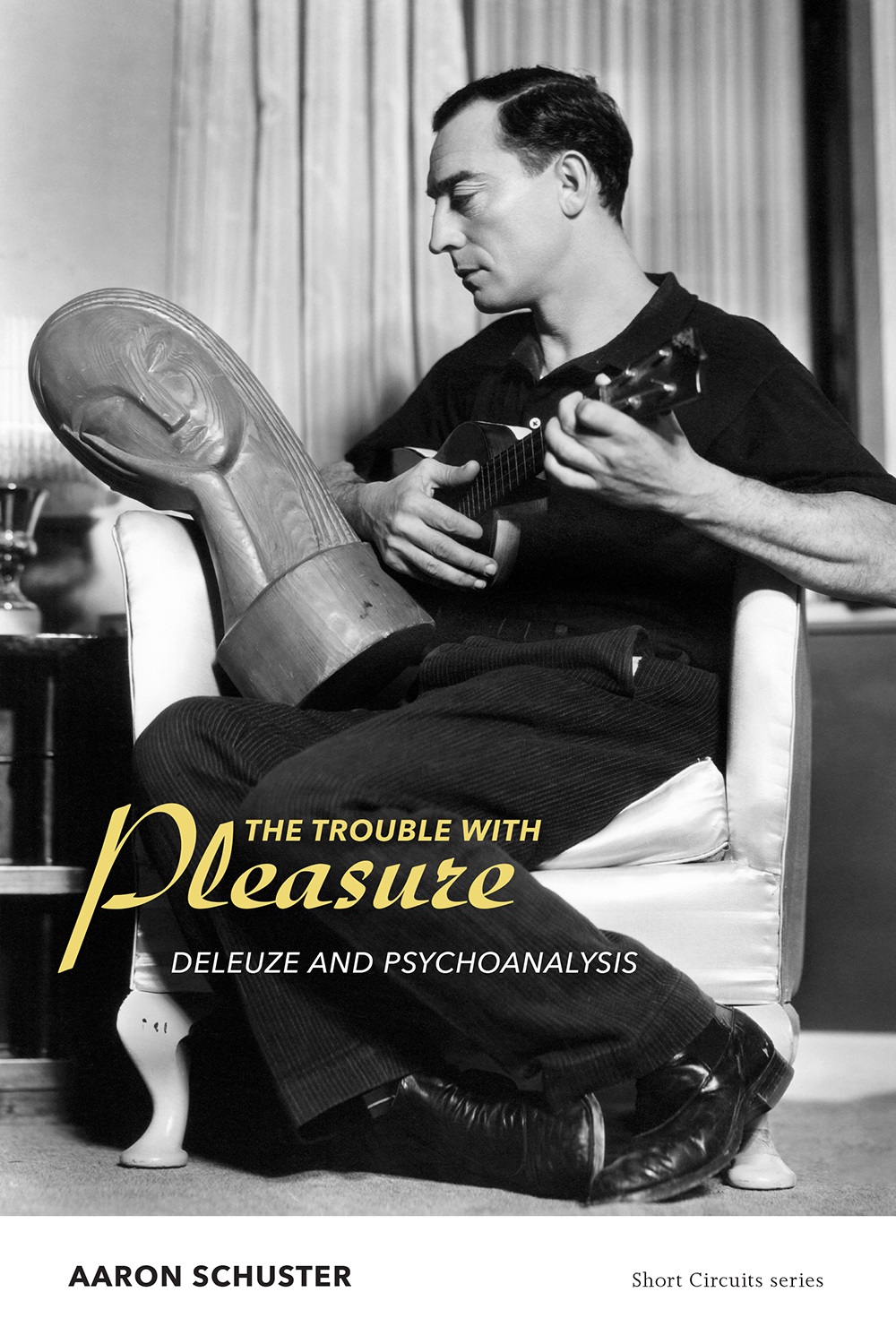Aaron Schuster over Spinoza’s Kunst van het klagen, kortweg genaamd: Ethica
Het Sandberg Instituut, de master opleiding van de Gerrit Rietveld Academie, biedt masters aan in Fine Arts (MFA), Interior Architecture (MIA) en Design (MDes). Aan dat Instituut werd in het studiejaar 2013-2014 een cross-departmental Theory Program begonnen, waarin de relatie filosofie – kunst sterker aan de orde zou worden gesteld en waarvoor dr. Aaron Schuster werd aangesteld. Daarvoor was Schuster Fellow aan het Center for Advanced Studies, Rijeka, Croatia, en aan het Institute for Cultural Inquiry ICI Berlin.
Deze Peter Sloterdijk van het Sandberg Instituut has written
on such subjects as the history of levitation, sex and anti-sex, corruption,
tickling, the politics of laziness, the comedy of Ernst Lubitsch, and Kafka’s
philosopher-dog.
Op 20 april heeft in New York de presentatie plaats van zijn boek [Cf.]:
Aaron Schuster, The Trouble with Pleasure: Deleuze and Psychoanalysis. MIT Press, 2016 – books.google

Hij behaalde zijn doctorsgraad aan de Katholieke Universiteit Leuven met de dissertatie “The Trouble With Pleasure: Philosophy and Psychoanalysi”; dit zal daarvan dus de handelsuitgave zijn. [Cf.]
In zijn boek, dat hij ziet als een “Kritiek van de Zuivere Klacht” [Kritik der reinen Beschwerde] geeft hij een filosofie van het klachten-hebben, waarin hij naast de neurosetheorie van Freud en Spinoza’s “intellectuele klacht van God”, vooral Deleuze’s ‘Grote Klacht’ behandelt. “Spinoza’s intellectual complaint of God?” [hij bedoelt, zoals we uit de index kunnen zien hier de genitivus subjectivus). Lees de merkwaardige paragraaf op p. 10-13 in books.google.
Blurb. Is pleasure a rotten idea, mired in negativity and lack, which should be abandoned in favor of a new concept of desire? Or is desire itself fundamentally a matter of lack, absence, and loss? This is one of the crucial issues dividing the work of Gilles Deleuze and Jacques Lacan, two of the most formidable figures of postwar French thought. Though the encounter with psychoanalysis deeply marked Deleuze's work, we are yet to have a critical account of the very different postures he adopted toward psychoanalysis, and especially Lacanian theory, throughout his career. In The Trouble with Pleasure, Aaron Schuster tackles this tangled relationship head on. The result is neither a Lacanian reading of Deleuze nor a Deleuzian reading of Lacan but rather a systematic and comparative analysis that identifies concerns common to both thinkers and their ultimately incompatible ways of addressing them. Schuster focuses on drive and desire -- the strange, convoluted relationship of human beings to the forces that move them from within -- "the trouble with pleasure."Along the way, Schuster offers his own engaging and surprising conceptual analyses and inventive examples. In the "Critique of Pure Complaint" he provides a philosophy of complaining, ranging from Freud's theory of neurosis to Spinoza's intellectual complaint of God and the Deleuzian great complaint. Schuster goes on to elaborate, among other things, a theory of love as "mutually compatible symptoms"; an original philosophical history of pleasure, including a hypothetical Heideggerian treatise and a Platonic theory of true pleasure; and an exploration of the 1920s "literature of the death drive," including Thomas Mann, Italo Svevo, and Blaise Cendrars.
Op de cover een foto die George Hurrell ca. 1930 maakte van Buster Keaton.

